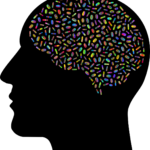List Of Meds That Make You Sleepy

Medications are often prescribed to help manage various health conditions, but some of them can have a side effect of causing drowsiness or fatigue. While this may be desirable for some patients, such as those with sleep disorders or anxiety, it can be problematic for others who need to remain alert and focused during the day.
According to the American Academy of Sleep Medicine, medications that cause drowsiness are among the most common causes of excessive daytime sleepiness. In one study, researchers found that up to 20% of people who take medications experience daytime sleepiness as a side effect.
Certain types of medications are more likely to cause drowsiness than others. However, it is important to note that not everyone who takes these medications will experience drowsiness as a side effect, and the severity of drowsiness can vary from person to person.
The likelihood of experiencing drowsiness as a side effect of medication can also depend on a number of individual factors, such as age, weight, and overall health. Older adults may be more susceptible to drowsiness caused by medication due to changes in how their bodies process medications. People who have certain medical conditions, such as sleep apnea or narcolepsy, may also be more prone to experiencing drowsiness as a side effect of medication.
In this article, we will discuss some of the most common medications that can cause drowsiness and fatigue, as well as ways to manage these side effects.
Antihistamines
Antihistamines are commonly used to treat allergies and colds, and many of them can cause drowsiness as a side effect. This is because antihistamines work by blocking the effects of histamine, a chemical that plays a role in wakefulness. Examples of antihistamines that can cause drowsiness include diphenhydramine (Benadryl), cetirizine (Zyrtec), and loratadine (Claritin).
If you are taking an antihistamine and experiencing drowsiness as a side effect, it may be helpful to take the medication at bedtime to minimize the impact on your daytime activities. You may also want to talk to your healthcare provider about switching to a non-sedating antihistamine if drowsiness is interfering with your daily life.
Benzodiazepines are a class of medications used to treat anxiety, insomnia, and seizures. These medications work by increasing the activity of a neurotransmitter called gamma-aminobutyric acid (GABA), which has a calming effect on the brain. While benzodiazepines can be effective at reducing anxiety and promoting sleep, they can also cause drowsiness, fatigue, and impaired coordination.
Examples of benzodiazepines include diazepam (Valium), alprazolam (Xanax), and lorazepam (Ativan). These medications should only be used as prescribed by a healthcare provider, and it is important to avoid driving or operating heavy machinery while taking them. If you are experiencing drowsiness or fatigue as a side effect of benzodiazepines, talk to your healthcare provider about adjusting your dosage or switching to a different medication.
Opioids are a class of medications used to treat pain, and they work by binding to specific receptors in the brain and spinal cord. While opioids can be highly effective at reducing pain, they can also cause drowsiness and impaired cognitive function. In some cases, opioids can even cause respiratory depression, which can be life-threatening.
Examples of opioids include oxycodone (OxyContin), hydrocodone (Vicodin), and morphine. These medications should only be used as prescribed by a healthcare provider, and it is important to avoid driving or operating heavy machinery while taking them. If you are experiencing drowsiness or fatigue as a side effect of opioids, talk to your healthcare provider about adjusting your dosage or switching to a different medication.
Muscle relaxants
Muscle relaxants are a class of medications used to treat muscle spasms and pain. These medications work by reducing muscle tone and relaxing the muscles. While muscle relaxants can be effective at reducing muscle pain and stiffness, they can also cause drowsiness, fatigue, and impaired coordination.
Examples of muscle relaxants include cyclobenzaprine (Flexeril), methocarbamol (Robaxin), and baclofen. If you are experiencing drowsiness or fatigue as a side effect of muscle relaxants, talk to your healthcare provider about adjusting your dosage or switching to a different medication. It may also be helpful to take the medication at bedtime to minimize the impact on your daytime activities.
Tricyclic antidepressants (TCAs) are a class of medications used to treat depression, anxiety, and chronic pain. These medications work by blocking the reuptake of certain neurotransmitters, including serotonin and norepinephrine, which can improve mood and reduce pain. However, TCAs can also cause drowsiness, fatigue, and impaired coordination.
Examples of TCAs include amitriptyline (Elavil), nortriptyline (Pamelor), and imipramine (Tofranil). If you are experiencing drowsiness or fatigue as a side effect of TCAs, talk to your healthcare provider about adjusting your dosage or switching to a different medication. It is important to avoid driving or operating heavy machinery while taking TCAs, as they can impair your ability to react quickly and make decisions.
Antipsychotics
Antipsychotics are a class of medications used to treat psychotic disorders such as schizophrenia and bipolar disorder. These medications work by blocking the effects of dopamine, a neurotransmitter that plays a role in mood, motivation, and reward. While antipsychotics can be effective at reducing symptoms of psychosis, they can also cause drowsiness, fatigue, and impaired coordination.
Examples of antipsychotics include aripiprazole (Abilify), olanzapine (Zyprexa), and risperidone (Risperdal). If you are experiencing drowsiness or fatigue as a side effect of antipsychotics, talk to your healthcare provider about adjusting your dosage or switching to a different medication. It is important to avoid driving or operating heavy machinery while taking antipsychotics, as they can impair your ability to react quickly and make decisions.
Sedative-hypnotics
Sedative-hypnotics are a class of medications used to treat insomnia and promote sleep. These medications work by enhancing the activity of GABA, a neurotransmitter that has a calming effect on the brain. While sedative-hypnotics can be effective at improving sleep quality, they can also cause drowsiness, fatigue, and impaired coordination.
Examples of sedative-hypnotics include zolpidem (Ambien), eszopiclone (Lunesta), and temazepam (Restoril). If you are experiencing drowsiness or fatigue as a side effect of sedative-hypnotics, talk to your healthcare provider about adjusting your dosage or switching to a different medication. It is important to avoid driving or operating heavy machinery while taking sedative-hypnotics, as they can impair your ability to react quickly and make decisions.
Managing drowsiness and fatigue
If you are experiencing drowsiness or fatigue as a side effect of medication, there are several strategies you can use to manage these symptoms. Some of these strategies include:
• Adjusting the timing of your medication: If your medication is causing drowsiness, it may be helpful to take it at bedtime to minimize the impact on your daytime activities.
• Reducing your dosage: Talk to your healthcare provider about whether reducing your dosage of medication may help reduce drowsiness and fatigue.
• Switching to a different medication: In some cases, switching to a different medication may help reduce drowsiness and fatigue. Your healthcare provider can help you determine if this is a good option for you.
• Avoiding alcohol and other sedatives: Alcohol and other sedatives can increase the drowsiness and fatigue caused by medication. Avoid consuming alcohol or taking other sedatives while taking medication that causes drowsiness.
• Getting enough sleep: If you are experiencing drowsiness and fatigue, it may be helpful to prioritize getting enough sleep each night. Aim for 7-9 hours of sleep per night, and establish





